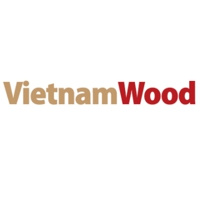- Read all
- Rice
- Fisheries
- Cassava
- Fertilizer & Pesticide
- Coffee
- Animal Feed
- Cocoa
- Seed
- Tea
- Wood
- Pepper
- Agricultural Cooperations
- Cashew
- Agricultural Investments
- Rubber
- Governmental Policies
- Sugarcane
- Agricultural Startup Ecosystem
- Corn
- Technological Innovations
- Spices
- Organic Agriculture
- Bean
- Food Manufacturing
- Fruit & Vegetable
- Agricultural Value Chain
- Flower
- Water & Waste Management
- Meat
- Processed Food
- Dairy
- Plant Originated Products
- General Agro Commodities
- Animal Originated Products
New race begins in coffee market
February 22, 2016
VietNamNet Bridge - Vietnamese coffee companies, anticipating big problems in export markets, are focusing on making instant and roasted coffee to sell in the domestic market.

The participants at a conference on the coffee industry held in HCM City in late December all agreed that Vietnam remains the world’s second largest exporter, but it has lost 4 percent of the market, from 22 percent to 18 percent in the 2014-2015 crop.
The problem is that while other coffee export countries offer products at competitive prices thanks to weak local currencies, Vietnam’s output and quality remains unstable.
IMF predicted that the Robusta price would fall by 10 percent in 2016, while the World Bank (WB) believes the price would decrease by 34 percent in 2016 and drop further in following years.
While coffee exports have decreased, the domestic sales have increased significantly because of the increasingly high demand for roast and instant coffee from young customers.
While coffee exports have decreased, the domestic sales have increased significantly because of the increasingly high demand for roast and instant coffee from young customers.
An analyst estimated that if 20 percent of the Vietnamese population drinks a cup of coffee every day, the coffee market would see a growth rate of 15 percent by 2020.
Euromonitor, a market survey firm, estimated that G7, an instant coffee product of Trung Nguyen, alone could bring revenue of VND185 billion.
The firm predicted that retail revenue from instant coffee in Vietnam in 2011-2016 may reach VND2.4-3.6 trillion with annual growth rate of 18.5 percent.
The domestic market, according to analysts, is getting more competitive as big companies have expanded their workshops and launched specific products to conquer niche market segments.
Nestle Vietnam, for example, has inaugurated a factory in Dong Nai province. German Neumann Gruppe is building its second factory in Dong Nai province with investment capital of $12 million. Massimo Zanetti Beverage Group (MZB Group) has opened its first production base in Vietnam in My Phuoc III Industrial Zone in Binh Duong province.
Meanwhile, Intimex has set up a coffee bean processing plant in My Phuoc II Industrial Zone which has the capacity of 90,000 tons per annum.
Phan Minh Thong, CEO of Phuc Sinh, which exports 50,000 tons of coffee a year, agrees that the domestic market is still large enough for finished coffee products. However, he said it was very difficult to conquer the domestic market, unless producers can provide differentiated products.
Pham Thi Bich Ha, deputy director of Solafood, also thinks the home market is still large for roasted and instant coffee. Meanwhile, Solafood decided to focus on making pure roasted coffee.
Vinacafe, a big company in the coffee industry, has marketed Vinacafe CHAT, advertised as made of 100 percent first extract of roasted coffee.
Khoa Le
Source: VietnamNet
Related news
-
Coffee price today October 31: Still low at 41,000 VND/kg
Coffee prices today October 31, 2022 in the world and domestic markets continue to move sideways. Currently, the domestic coffee price is still maintaining at 40,400 - 41,000 VND/kg.October 31, 2022 -
Dak Lak dedicates thousands of hectares to durian production for export
Dak Lak Provincial People's Committee held a conference on October 26 to manage, monitor and develop the codes for planting areas and export packaging facilities in the area.October 27, 2022 -
Bac Giang lychee is qualified to export to all markets
Through the results at Eurofins Testing Center, 821 indicators of pesticide residues of Bac Giang lychee were satisfactory.November 4, 2022 -
Growing organic oranges is difficult to do but the price is twice as high
Tuyen Quang In this year's orange crop, organic orange growers in Ham Yen district (Tuyen Quang) earned hundreds of millions of dong in profit because oranges were well priced and accepted by the demanding market.November 24, 2022 -
Analysis: Factors driving world rice prices in the coming time
Movements from India and China, the Russia-Ukraine conflict, droughts in Brazil and Paraguay can all affect the global rice marketNovember 18, 2022
Events See more

Vietnamplas 2022 - Vietnam International Plastic and Rubber Industry Exhibition
23-03-2023 - 26-11-2022 09:00 - 17:00
Saigon Exhibition and Convention Center (SECC) – 799 Nguyen Van Linh Boulevard, District 7, City. Ho Chi Minh.

GROWTECH EXPO - FLORAPLANTEXPO 2021
02 - 05-11-2022 09:00 - 17:00
Saigon Exhibition and Convention Center (SECC) – 799 Nguyen Van Linh Boulevard, District 7, City. Ho Chi Minh.

VTG 2022
18 - 25-10-2022 09:00 - 17:00
Saigon Exhibition and Convention Center (SECC) – 799 Nguyen Van Linh Boulevard, District 7, City. Ho Chi Minh.

VIETSTOCK 2022 - SPECIALISED EXHIBITION OF LIVESTOCK, FEED AND MEAT PROCESSING IN VIETNAM
12 - 14-10-2022 08:00 - 17:00
799 Nguyen Van Linh, Tan Phu Ward, Dist. 7, Hochiminh City, Vietnam

VTG 2022
21 - 27-09-2022 09:00 - 17:00
Saigon Exhibition and Convention Center (SECC) – 799 Nguyen Van Linh Boulevard, District 7, City. Ho Chi Minh.
.png)
VIETFISH 2022
22 - 26-08-2022 09:00 - 17:00
Saigon Exhibition and Convention Center (SECC) – 799 Nguyen Van Linh Boulevard, District 7, City. Ho Chi Minh.
Business Opportunities See more
-
BURANI INTERFOOD is looking for Buyers in Vietnam
Type:
November 22, 2021
-
BURANI INTERFOOD is looking for Buyers in Vietnam
Type: Wholesaling Meat
November 22, 2021
-
BURANI INTERFOOD is looking for Buyers in Vietnam
Type: Wholesaling Meat
November 22, 2021
-
BURANI INTERFOOD is looking for Buyers in Vietnam
Type: Wholesaling Meat
November 19, 2021
-
BURANI INTERFOOD is looking for Buyers in Vietnam
Type:
November 19, 2021
-
Indian purchaser looking for high quality cashew nut kernel from Vietnam
Type: Exporting Cashew
Mar 14, 2016
534
Limitless database of qualified and verified agricultural partners
124
Exclusive buy & sell leads on specific agricultural commodities
24
Agricultural events in Vietnam and Asia Pacific region
Stay informed!
Enter your email address below to receive updates each time we publishes new content
